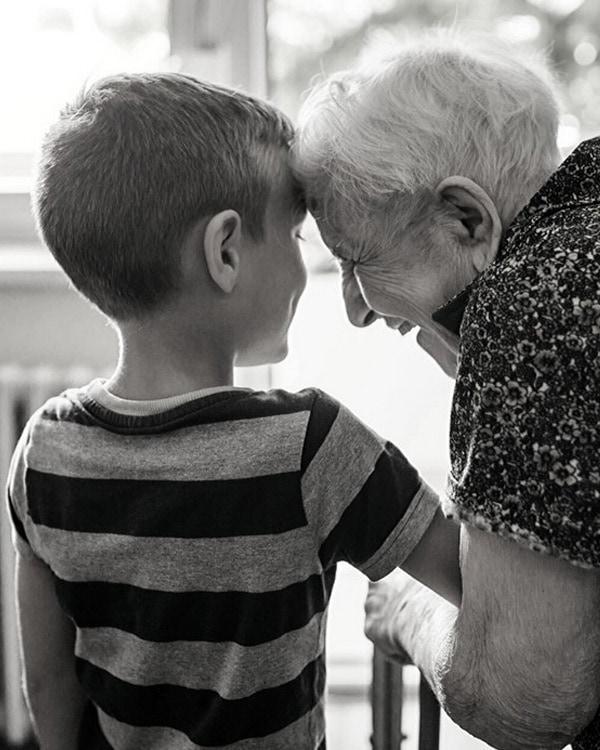

Building Your Support Network: Talking to Family and Friends about Osteoporosis


Building Your Support Network: Talking to Family and Friends about Osteoporosis
Our family and friends can form a valuable support team for us as we work through the challenges of living life with osteoporosis. They can be both cheerleaders and caregivers who provide us with encouragement and assistance when we need it.
In this article, we will explore practical strategies you can use to help build and educate a personal support network you can rely on. Your network – the people you spend most of your time with every day – may not have a good understanding of what osteoporosis is and how it impacts your daily life and activities. We’ve been in this position, and we are here to help by sharing ideas about how to talk to your family and friends (as well as acquaintances) about your osteoporosis and how to ask for support when you need it.
Why is this important? Living with osteoporosis is an emotional and physical journey that lasts a lifetime, so it’s important to have a support team that you can rely on and feel comfortable talking with during your journey.

10 strategies to help your support network learn the about osteoporosis:
There are many ways your support team can learn about osteoporosis. Some may prefer to read reliable information, while others would rather talk with you, listen to podcasts, watch webinars or participate in your appointments. Sometimes, a member of your team may not understand how serious osteoporosis really is. Education is the key. Here are some ideas to help you begin to build their knowledge base and get support.
1. Share articles from the Osteoporosis Canada website where you’ll find important evidence-based articles about this disease such as:
- What is osteoporosis? What is it not?
- Risks or limits for those with osteoporosis
- Facts and stats on osteoporosis
2. Invite someone from your team to join you at your next healthcare appointment to learn more about your treatment and specific needs. Encourage them to ask questions. Don’t forget that the professionals on your healthcare team are also part of your larger support team. These healthcare professionals may include your doctor, pharmacist, physiotherapist, dietician and/or other specialists who support you.
3. Listen to a webinar or podcast together that discusses osteoporosis and some of the important lifestyle changes that you may want to make to help you avoid fractures.
4. Print reliable resources about osteoporosis and share them with team members who prefer to read the information.
5. Invite them to join you in the exercises you are doing to improve your bone health and prevent fractures. This is an excellent opportunity to discuss how osteoporosis affects you and what you need to do to keep safe.
6. Cook together and discuss the importance of a nutrient rich diet for bone health. Join an online cooking webinar with Osteoporosis Canada and view their many recipes online.
7. Teach your family and friends about your diet, exercise, precautions, and routines. While they may not have osteoporosis, you can help them support their bones by paying attention to their own health. Discuss the importance of exercising to create strong muscles, improve bone density as well as balance to prevent falls. Also, help them learn about the importance of calcium and vitamin D to maintaining healthy strong bones.
8. Let them know that managing your osteoporosis is important for your physical and mental well being. Tell them how much it means to you to have them there to talk to and learn how this disease impacts you.
9. Share what you are working on to live well with osteoporosis. This might include exercises to improve your bone strength and balance, a well-rounded diet, and changing how you do daily activities to lower fracture risk.
10. Ask them to help you create an “elevator pitch” to briefly summarize what osteoporosis is and how it affects you. This might be helpful if you are in a situation where you need to avoid an activity that puts you at risk of a fracture or have to ask for help. For example, you could say, “I have osteoporosis – my bones can break if I ____________ . Will you help me? You could use this “pitch” when you are at the airport and need assistance lifting your luggage from the carousel or are at home and need someone to get the turkey out of the oven.
Let family and friends know how they can help you:
Tell the people on your care team exactly how they can support you. Some examples include: getting grocery bags in and out of the car, ensuring meals are rich in calcium, shovelling snow/salting outside in the winter, removing tripping hazards (such as area rugs) from the floor, installing grab bars in the bathroom or railings in all stairwells.
Support can also involve talking and providing emotional support when you need it. We understand that talking with family members and friends about osteoporosis isn’t always easy. These practical suggestions can help you open the door to conversations about living with this disease and build a support network around you that you can count on. Be sure to visit the Osteoporosis Canada website, where you will find a wealth of evidence-based articles, podcasts and tools that you can share with your family and friends such as:
- OC Blog https://osteoporosis.ca/news/oc-blog/
- Unbreakable the OC Podcast https://osteoporosis.ca/oc-podcast/#podcast-episodes
We invite you to forward and share this article with your support network or anyone that you think would benefit from this information. Join our community by subscribing to this e-newsletter and learn more about the resources available from Osteoporosis Canada.
Credit: COPN, the Canadian Osteoporosis Patient Network is the patient arm of Osteoporosis Canada, a national network of people living with osteoporosis.



